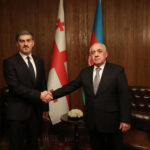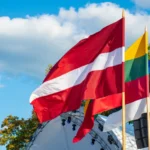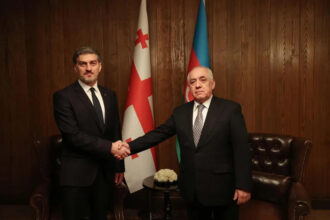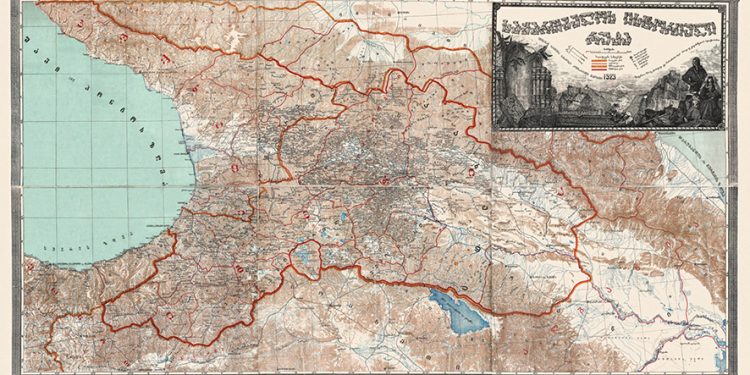When the late American historian Carl Becker, one of his most famous works, published “Modern History” in 1931, the contours for Sakartvelo weren’t very clearly cut out on his world map because we were then just one of those obscure soviet republics. I’m not surprised that the scholars of the day were unaware of Georgia’s history. Otherwise, their meticulously sharp eye should have noticed the country which, in medieval times, ruled the Caucasus as one of its most prominent political and militaristic powers. Carl Becker, who wrote a popular book on human history, did not mention Georgia once. In fact, Armenia is listed in the index of the book, which does not incite any jealousy, but rather stimulates the thought that the author’s professional approach was lacking.
There are many reasons to be disappointed that Georgia is not mentioned in the various reference and text books available on international markets. The situation has improved, but not to the extent that this nation can be proud of her antiquity and long history of Christianity. Georgia is also an organic part Modern History, which, according Becker, is our time and civilization’s history.
We can’t complain about others who forget to mention us or refuse to do so. Sakartvelo’s popularity in the global market is entirely in our hands. We must learn to network our talent and energy in order to reach the billions of minds and hearts around the world. Becker’s 900-page Georgia book was not able to include all the information he wanted, but nobody will criticize Becker for this. No one, except for us, has noticed the frustrating omission over the past hundred years that the book has been on the shelves of libraries and bookstores. In fact, we, the citizens of our country, should be the ones to address any grievances. If we, the people, remain silent and dumb, the world will continue to ignore our history and culture. We must speak out loudly so that the world can think of us in a positive light every now and then, and be motivated to work with Georgia more effectively and extensively.
We value the wide and organic recognition of the world community. Not only do we enjoy formal recognition from the United Nations – which we already have – but also a recognition that is conducive to a universal acceptance of the current and historical value of our nation, which can be translated into enduring peaceful and mutually beneficial interactions with the world. We must therefore intensify and broaden the process of Georgian introduction to the rest of the world. We need to invest time, money and energy in order to achieve this. All of these variables have a limited number, so we need to decide on our priorities and make choices as soon as possible.
Staying mum is a waste of cultural and material resources. We are wasting them on things less important than letting the world know about our existence. This thought can be confirmed by a mathematical calculation that shows how much time, money and energy our people have spent on street demonstrations and pickets over the past thirty years. Imagine where Georgia would be today if the nation spent the aggregate time multiplied by wasted workhours on productive labor. Isn’t that a catastrophe? Had we known better, we could have done real magic for our well-being. Why not stop regretting our wasted pasts and start living in the present? There is still plenty of time! The task is simple: channel the time, money and energy that are still available on this land in a way that is beneficial and correct, and let the rest of the world know that we’re here and ready to engage. Why is it so hard to be rational?
Nugzar B.Ruhadze, Op-Ed
Read More @ georgiatoday.ge













